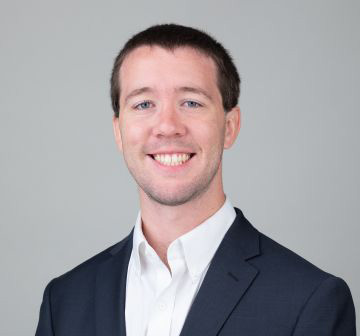Kelly Drews graduated with a PhD in Experimental Pathology from University of Virginia’s School of Medicine in April 2019. Under mentorship of Drs. Mark Kester and Judy White, Kelly investigated the impacts of sphingolipid metabolism and lipid composition on human Influenza virus and Ebolavirus infections. Kelly currently leverages his scientific training in health science consulting sector as an Associate Consultant at Triangle Insights Group, a for-profit organization in Durham, North Carolina
Q: What future career did you envision when you began Graduate school at University of Virginia?
I originally thought I would go into industry to advance biotech or pharma research, perhaps at the bench or in a management role. I speculated that academia wouldn’t be the right path for me, simply due to relatively few numbers of available tenure-track faculty positions.
Q: How did you explore your interest in Consulting as a post-PhD career option?
I tried to get as much exposure to anything related to business, either through formal education such as attending boot camps or through experiences like internships and part-time volunteering. However, I didn’t do anything specifically related to consulting.
Q: In your experience, what are some valuable skills for Consulting careers?
Managing multiple projects and tasks, and problem-solving are key skills involved in Consulting work. It is critical to determine what pieces of information matter based on client’s needs, and then to communicate important insights to meet those needs without muddling the waters with unnecessary information.
Q: What are some opportunities to hone those skills during PhD or Postdoc training?
Multi-tasking and problem solving go hand in hand with a PhD training, so those should come naturally. Sorting out extraneous information may be challenging because PhDs are trained to present a lot of data and have healthy discussions or debates on each piece of our project. I would advise PhD students and Postdocs to explain your science to a broad range of audiences and see what actually matters to a non-specialist audience. Does your grandmother need to know the exact type of antibody you’re using to probe a Western blot? Probably not. Knowing when to go into detail and when to keep things high-level is a critical skill to have.
Q: Tell us more about the job search, application, and interview process?
I started looking for jobs about 6 months before I graduated because I wanted to plan my post-graduate career as early as possible. I learned about this position through networking with some contacts at Darden School of Business and found out that Triangle Insights group was hiring PhDs from UVA, Duke University, and University of North Carolina. I conducted informational interviews with several employees on the phone, and after those conversations I decided to apply for the position.
I spent some time tailoring my resume and cover letter to consulting careers and specifically, to appeal to a smaller, boutique firm like my current employer. I had a phone interview, then a skype interview, and finally, a full-day case presentation intermixed with behavioral interviews at the company offices in Durham, NC. I think the most useful thing I did throughout the process was to practice my case study skills and to remember to speak clearly and confidently. Consulting is about creating logical solutions to complex problems and then being able to present your solutions to a broad audience.
Q: What advice would you give PhD students and Postdocs interested in pursuing consulting careers?
In a word, network. I know everyone says that and it’s easier said than done, but take every chance you get to meet people. Go to those career fairs, those “biotech and beers”, and other networking events. Conduct informational interviews, follow-up with contacts from years back, keep in touch with people so they remember you when you start actively searching for jobs. You never know when someone knows a person who knows a person that might be looking for a candidate like you.

